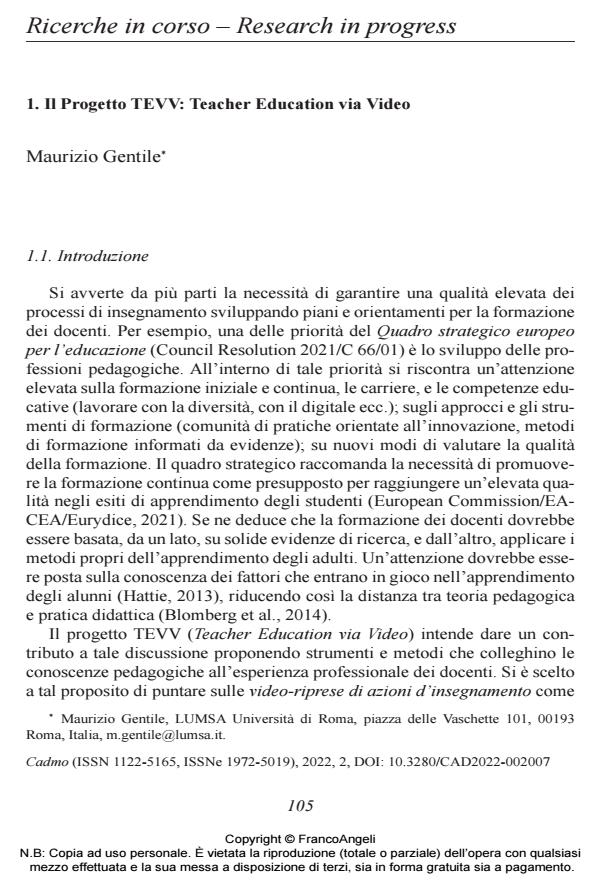Ricerche in corso
Titolo Rivista CADMO
Autori/Curatori Maurizio Gentile, Elisa Truffelli, Federica Caccioppola
Anno di pubblicazione 2023 Fascicolo 2022/2
Lingua Italiano Numero pagine 17 P. 105-121 Dimensione file 178 KB
DOI 10.3280/CAD2022-002007
Il DOI è il codice a barre della proprietà intellettuale: per saperne di più
clicca qui
Qui sotto puoi vedere in anteprima la prima pagina di questo articolo.
Se questo articolo ti interessa, lo puoi acquistare (e scaricare in formato pdf) seguendo le facili indicazioni per acquistare il download credit. Acquista Download Credits per scaricare questo Articolo in formato PDF

FrancoAngeli è membro della Publishers International Linking Association, Inc (PILA), associazione indipendente e non profit per facilitare (attraverso i servizi tecnologici implementati da CrossRef.org) l’accesso degli studiosi ai contenuti digitali nelle pubblicazioni professionali e scientifiche.
1. Il Progetto TEVV: Teacher Education via Video
2. Qualità partecipata e servizi 0-6 anni: una ricerca formazione
3. La cittadinanza tra globalità, sostenibilità ed educazione. Un’indagine sulle convinzioni degli insegnanti
Maurizio Gentile, Elisa Truffelli, Federica Caccioppola, Ricerche in corso in "CADMO" 2/2022, pp 105-121, DOI: 10.3280/CAD2022-002007